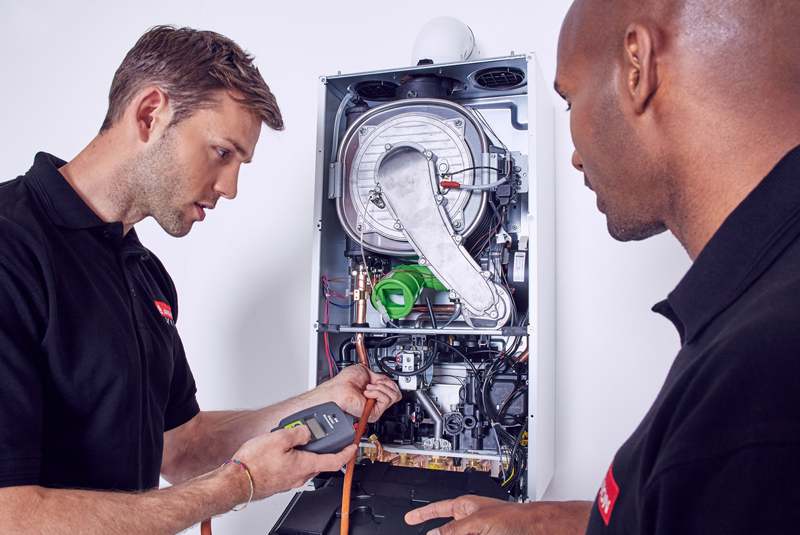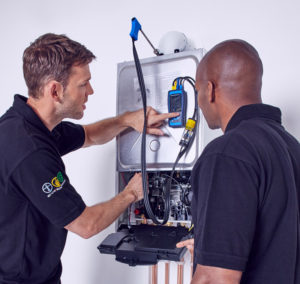
The topic of skilled workers – or rather the lack of them – has been in the headlines a lot this year, with recent reports suggesting gas workers could demand ‘Premier League level salaries’ if the issue isn’t addressed. Steve Long, Training & Service Manager at Ariston, explores the potential avenues for tackling the skills shortage head-on.
The UK Employer Skills Survey published in 2016 reported 6% of all employers had at least one “skills shortage-related vacancy” – an increase from the 4% reported back in 2013. The survey questioned 91,200 employers, which means there are around 5,000 skilled jobs that UK employers have been unable to fill.

Turning attention towards the heating industry, our friends at the HHIC believe that this skills gap threatens productivity and growth – not only within individual companies, but also throughout the wider economy as a whole. Indeed, with the sector facing what seem like ominous skills shortages which are only likely to get worse as the ageing workers retire, it remains as important as ever to focus on what measures can be taken to close the gap. After all, if a boiler fails or a system needs upgrading, people are solely reliant on qualified heating engineers for assistance.
One option is the national apprenticeship route, with the HHIC having endorsed this as a positive move for both a company/business as well as the apprentice themselves. Indeed, 72% of businesses have reported improved productivity as a result of employing an apprentice, while 75% of employers say their apprenticeship programme has helped cut recruitment costs.
This is further backed up by the recent findings of the Association of Plumbing and Heating Contractors (APHC). Its research indicated that apprenticeships should be encouraged as an alternative to attending university. Indeed, the APHC discovered 86% of people surveyed agreed that school leavers should be encouraged to consider an apprenticeship instead of higher education – with only 2% disagreeing.
The APHC findings also found apprenticeships were viewed favourably due to benefits including a better chance of finding employment, the opportunity to gain broader experience of life within the workplace and the chance to learn a useful skill. Many of those surveyed by the Association also recognised the shortage of skilled tradespeople. It further identified that although degrees and university remain popular, the high levels of student debt associated with them are negative factors; this is in stark contrast to apprenticeships, which allow individuals to earn as they learn.
Figures posted earlier this year revealed there are now over 500,000 apprentices in England – a 14% rise on last year. This looks set to increase even more in the future with (at the time of writing) the UK Government still working towards creating three million apprentices by 2020 through the independent, employer-led Institute for Apprenticeships.
In the meantime, another way of ensuring the heating sector skills base remains strong is for existing installers to invest in regular training. This is a means of keeping up to date with the latest technological developments, as well as any changes in legislation. In addition to growing and strengthening existing skillsets, training also boasts the benefit of attracting new customers, which is always good for developing a strong reputation and increasing profit margins.

While installers can be reluctant to take time off work to attend a training course, doing so will undoubtedly be rewarding over time. Industry recognised training courses offer practical, hands-on advice and learning, designed to enhance installers’ skillsets and strengthen their knowledge base.
Training not only keeps existing gas engineers and tomorrow’s generation of heating installers updated with developments, it also encourages industry newcomers to learn the tools of the trade.
At Ariston, we have firmly committed to improving training, having invested in a new network of dedicated centres throughout the UK, each providing free gas boiler and remote diagnostics courses (with £300 cashback available upon completion of the course, subject to Ts&Cs). These offer both theory sessions and hands-on, practical classroom experience – including expert tuition on understanding operational parameters, including how to range rate the boiler, as well as install a multi-zone system and the latest ‘smart’ controls.
Furthermore, boiler training provides installers with an in-depth understanding of servicing, while highlighting the importance of making customers Gas Safe aware. Manufacturer training courses will also explain how to inspect, clean and/or position a flue safely, as well as check condensate traps. Training should also cover additional hot water-related and servicing issues, including calculating temperature rises and measuring flow rate.
In addition to these practical elements, all relevant documentation should be explained; for example, the HHIC Benchmark Commissioning List, as supplied with every UK boiler to validate its installation warranty. Topics such as ErP and calculating a system efficiency label should also be covered in detail.
So, while the headlines state there is a lack of skilled workers, reports of the industry’s demise are greatly exaggerated. There is plenty of time and multiple opportunities for the heating sector to combat a skills gap, either via apprenticeship schemes or through manufacturers’ training facilities. The industry needs skilled workers and there are plenty of people out there willing to learn the tools of the trade – the challenge simply lies in encouraging them to do so.













